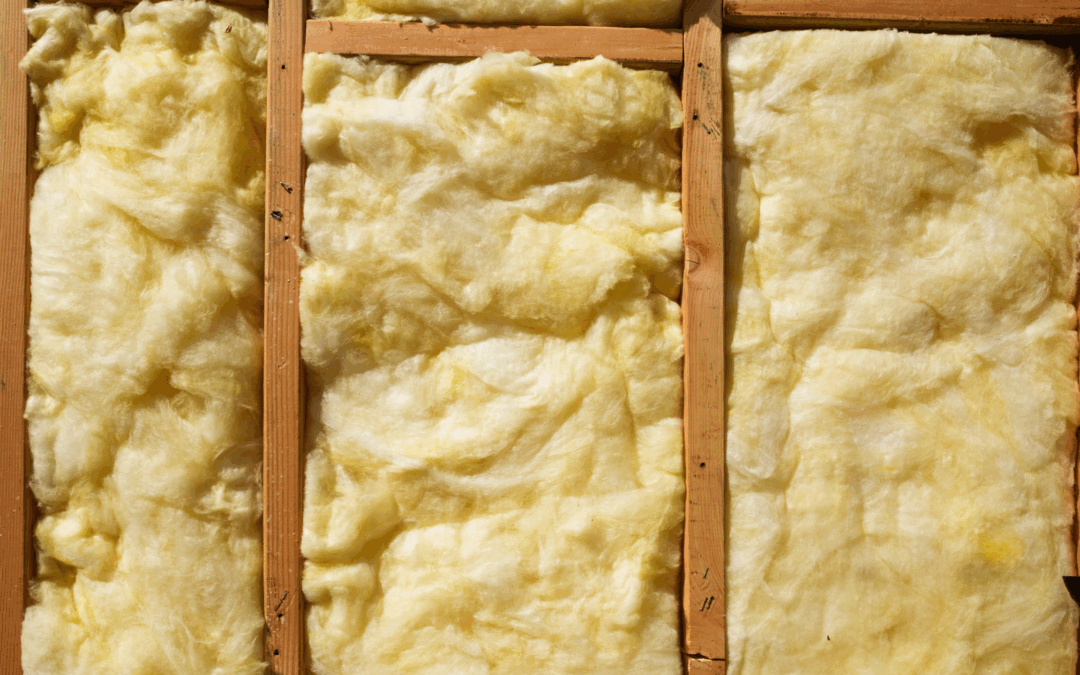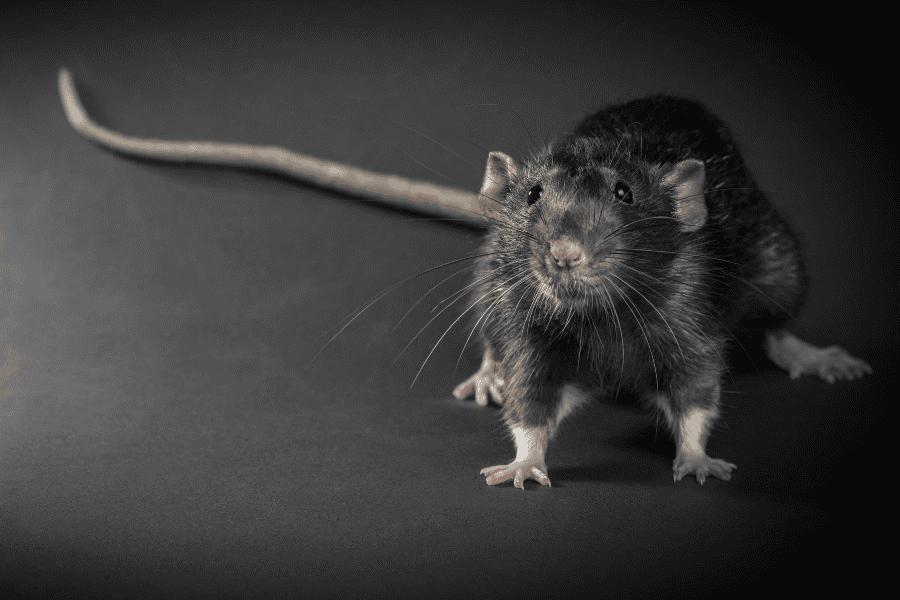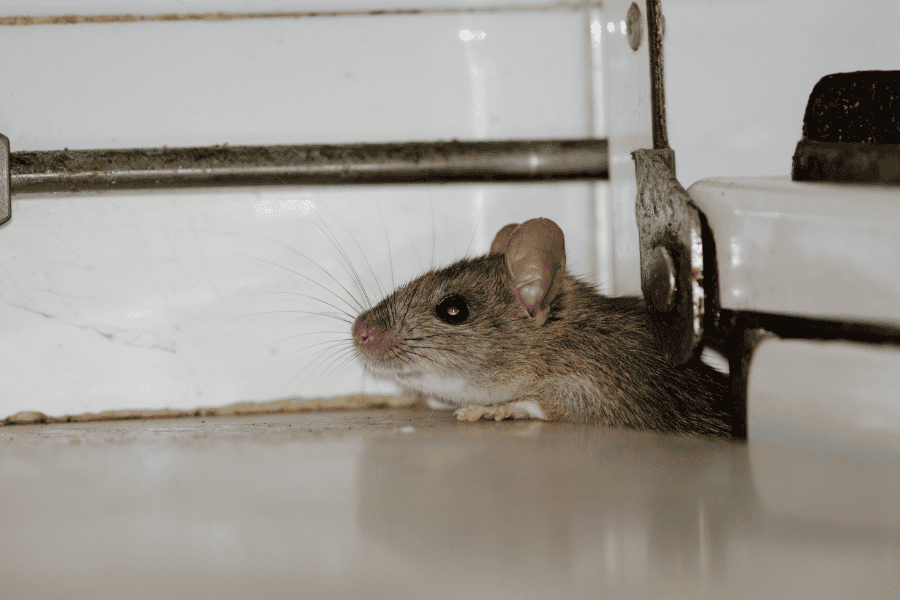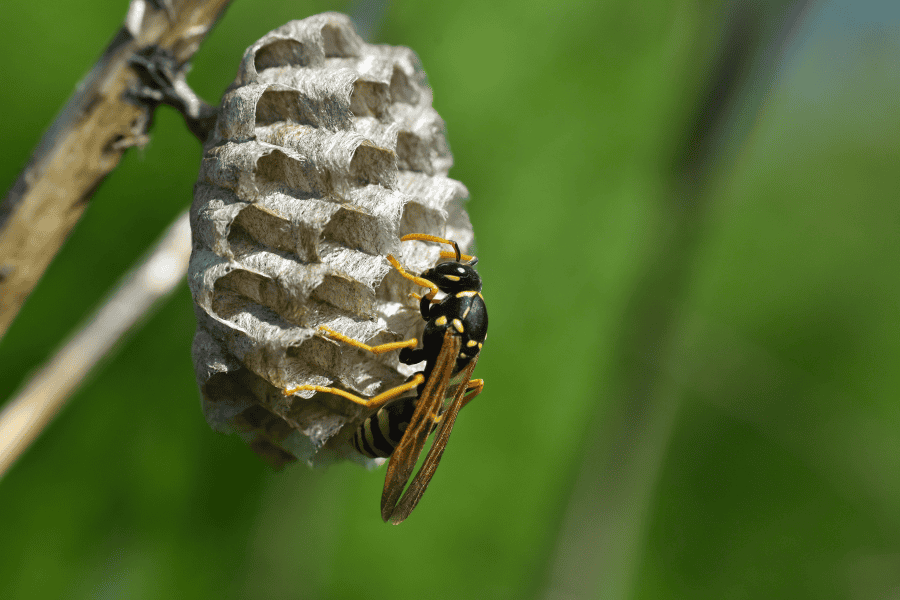READY TO GET STARTED?
REQUEST A FREE ESTIMATE
Fill out the form below or call (888) 466-7849 for a free, no-obligation estimate.

If you’ve been hearing bumps, scratches, or rustling noises coming from your attic, you’re not alone. Many South Carolina homeowners face unwelcome attic tenants, from rodents to insects, and even insulation issues that encourage these pests to stick around. To protect your home, it’s essential to know what’s causing the commotion and how to address it. Below, we’ll cover five common attic pests and how insulation problems could be making your attic the perfect place for these critters to settle.
Mice and rats are some of the most common attic invaders. These small pests can squeeze through tiny gaps in your roof or walls and quickly turn your attic into a nesting site. Once inside, they chew on wires, gnaw on wooden beams, and leave droppings that create health hazards.
Squirrels may seem cute in your backyard, but they’re far less adorable when they invade your attic. They typically enter through roof vents or damaged soffits and quickly set up nests. Left unchecked, their strong chewing habits can damage beams, ducts, and wiring.
South Carolina’s warm climate can attract bats looking for a space to roost, and your attic often fits the bill. While bats play an important role in controlling insect populations, their droppings, called guano, can pose serious health risks.
Attics are often home to a variety of insect pests, including wasps, bees, and cockroaches. Wasps and bees build nests in eaves, while cockroaches prefer warm, dark spaces near food sources. Left unchecked, these pests can lead to infestations that spread through the home.
Beyond pests, poor insulation can contribute to your attic issues. Damaged attic insulation creates a warm, inviting nest for various pests while contributing to higher energy bills and reduced home comfort.
Tackling pests and insulation issues in your attic takes a combination of prevention and professional support. Here are some tips to protect your home long-term:
By addressing these issues proactively, you can avoid costly repairs and keep your home protected, comfortable, and pest-free.
The noises in your attic may seem alarming, but they’re often a telltale sign of common attic pests or insulation problems. Whether it’s rodents, squirrels, bats, insects, or weak insulation creating the perfect habitat, taking preventive steps early on is key to maintaining a healthy home.

When spring arrives in Carrollton, Georgia, it’s hard not to feel excited about the sunny days, blooming flowers, and warmer weather. But as your family starts to enjoy the outdoors, some unwelcome visitors might tag along too. Mosquitoes, ants, and termites thrive in the warmer months and can quickly turn both your backyard and home into their playground. Thankfully, with a little know-how and the right plan, you can keep your home pest-free and healthy for everyone in the family, including pets! Here are some warm-weather pests to watch out for and tips to help you take action against them this spring.
Mosquitoes are a classic spring and summer annoyance. They seem to appear the moment you step outside, whether you’re hosting a barbecue or just unwinding on the porch. Carrollton’s warm and humid weather makes it an ideal spot for mosquitoes to breed, especially near standing water. Beyond being irritating, mosquitoes can also pose health risks, carrying diseases like West Nile virus.
Ants are tiny but determined and can show up both indoors and outdoors this time of year. They’re especially drawn to crumbs on countertops or sugary drinks left by the pool. Fire ants, which build large mounds in lawns, can also be a real concern if kids or pets accidentally disturb their nests.
Termites are a homeowner’s nightmare, especially because they can cause significant damage without your family even noticing. Subterranean termites, common in Carrollton, often start in moist, dark areas before creating costly problems in home foundations or walls. Spring is when you’ll see termite swarms, a big sign that these pests might be nearby.
Spring should be about family fun—not dealing with warm-weather pest problems. By tidying up, sealing entry points, and removing things that attract pests, you’re already ahead of the game. Don’t wait until pests take over. Spring into action now by calling your local pest professionals so you and your loved ones can enjoy everything great about Carrollton’s sunny season, worry-free!
Give us a call or click the button below to get started with a FREE pest control quote.

Cockroach infestations are a common issue for Newnan homeowners. These pests are more than just a nuisance; they can spread bacteria, trigger allergies, and contaminate food. With Newnan’s warm, humid climate creating the perfect conditions, it’s crucial to take proactive steps to protect your home.
The warmth and humidity in Newnan provide an inviting environment for cockroaches. They typically infest dark, damp spaces like basements, kitchens, and bathrooms, making them difficult to detect until the infestation has progressed. Common species in the area include German, American, and smoky brown cockroaches.
Cockroaches pose health risks by spreading pathogens such as Salmonella and E. coli. Their droppings and shed skin can also exacerbate allergies or asthma, making prompt and effective pest control essential.
Preventing cockroach infestations starts with making your home less appealing to these pests. Here are some key steps:
Cockroaches forage for food, so cleanliness is critical.
Cockroaches thrive in damp areas, so eliminate sources of excess moisture.
Block areas where cockroaches might enter your home.
Cockroaches love to hide in clutter. Keep your home organized and clear of piles of paper, old newspapers, and magazines to deter them. Opt for plastic storage containers instead of cardboard boxes, which can attract pests and give them a place to nest.
Green pest control is an environmentally responsible approach that uses low-toxicity solutions to manage pests. It’s just as effective but avoids the use of harsh chemicals, making it safer for children, pets, and the planet. Options include:
Green pest control not only eliminates cockroaches but also helps prevent future infestations while prioritizing the health of your home and environment.
Cockroaches are a persistent problem in Newnan, but they’re not unbeatable. By maintaining a clean, moisture-free, and clutter-free home while sealing entry points, you can make it difficult for these pests to move in. For more severe infestations, don’t hesitate to seek help from a professional pest control company that offers both traditional and eco-friendly pest control options.
Give us a call or click the button below to request your FREE estimate!

Pest infestations can be a major nuisance for homeowners and businesses in Atlanta. Whether you are dealing with ants in the kitchen, rodents in the attic, or termites damaging your home’s foundation, securing professional pest control services is essential. But how much does pest control cost in Atlanta? In this blog, we will break down common pest control services, factors that influence pricing, and why investing in scheduled pest management is a smart decision. If you’re looking for affordable pest control solutions, read on to find out what to expect from a local exterminator and how to get the most effective pest control Atlanta has to offer.
When hiring a professional pest control company, the type of service you need will greatly affect the price. Here are some of the most common pest control services available in Atlanta:
This service includes treatments for common household pests such as ants, spiders, cockroaches, silverfish, and earwigs. It typically involves an initial treatment followed by regular maintenance visits to prevent future infestations.
Termites can cause significant structural damage, making them one of the most expensive pests to manage. A professional termite control company will offer bait stations, liquid treatments, or fumigation services to eliminate pests and protect your home from future infestations.
Rodents like rats and mice pose serious health risks. Professional rodent control services include trapping, exclusion, and preventative measures to keep rodents from returning.
Mosquitoes thrive in Atlanta’s humid climate. Mosquito control services use larvicides, adulticides, and habitat reduction to control populations effectively.
Bed bug infestations require specialized treatments such as heat treatments, chemical applications, or a combination of both.
If you have issues with raccoons, squirrels, or opossums, hiring a local exterminator for humane wildlife removal services is crucial.
The cost of pest control Atlanta services depends on several key factors:
Some pests, like termites and bed bugs, require specialized treatments that are more expensive than general pest control.
A minor pest issue will cost significantly less than a full-blown infestation requiring extensive treatment.
A one-time pest control treatment costs more per visit than an ongoing maintenance plan. Many homeowners opt for scheduled pest control services to prevent future infestations.
Larger homes or commercial buildings require more product and labor, increasing the overall cost.
Eco-friendly and green pest control solutions may cost more than traditional chemical treatments but offer safer alternatives for families and pets.
A highly trained professional from a reputable company may charge more, but their expertise ensures effective pest control solutions that save you money in the long run.
Many homeowners and businesses in Atlanta opt for ongoing pest management plans rather than one-time treatments. Here’s why:
Regular maintenance prevents large infestations that can be costly to eliminate.
Scheduled pest control ensures that treatments remain active and prevent future pest problems before they escalate.
Pests carry diseases, contaminate food, and cause allergies. Professional pest control services help protect your family and employees from health risks.
Termites, rodents, and carpenter ants can cause significant damage to your home’s structure. Routine pest management safeguards your investment.
Knowing that your home is protected from pests year-round provides peace of mind and a better quality of life.
Atlanta’s warm climate makes it a hotspot for various pests. Here are some of the most common:
If you’re looking for affordable pest control options, follow these tips:
Pests can be a persistent problem, but with highly trained professionals on your side, you can eliminate pests and protect your home year-round. Whether you need a one-time treatment or ongoing pest management, hiring an Atlanta pest control company ensures that you get the most effective pest control solutions available.
If you’re struggling with a pest problem, don’t wait—contact a local exterminator today for a free inspection and take the first step toward a pest-free home!
Don’t let pests take over your home or business. Contact us today to schedule your free inspection and get a customized treatment plan from Atlanta’s top pest control services provider. Our highly trained professionals are ready to provide affordable pest control solutions to keep your space pest-free. Call now and reclaim your home!

Ant infestations are a common household nuisance in Georgia, where warm temperatures and humidity create ideal conditions for these tiny invaders. Whether they’re in your kitchen, bathroom, or backyard, ants can be a persistent problem that requires proactive pest control solutions and, oftentimes, the use of an ant control company. Understanding the types of ants found in Georgia, how to eliminate an ant infestation, and the best prevention strategies will help restore peace of mind in your home.
Several species of ants frequently invade homes across Georgia. Identifying the type of ant you’re dealing with is the first step in determining the right ant control solution.
Discovering ants invading your home can be frustrating, but with the right approach, you can get rid of ants and prevent them from returning. Here’s how:
Ants typically enter homes through tiny cracks, gaps, and openings around windows, doors, and plumbing. Inspect your home thoroughly and seal any potential entry points to cut off their access.
Ants are drawn to food crumbs, spills, and standing water. Keep your kitchen clean by wiping down surfaces, storing food in airtight containers, and fixing leaky pipes to eliminate moisture.
Certain natural ingredients can help deter ants from invading your home:
Ant baits are an effective method for controlling colonies. The ants carry poisoned bait back to their nest, eliminating the entire colony over time. Be patient, as bait traps can take several days to work.
If DIY methods don’t resolve the ant problem, it’s best to seek help from an experienced ant control company. Professional ant exterminators near you will assess the infestation, identify the species, and apply targeted treatments for long-term results.
Preventing an ant infestation is easier than dealing with one. Here are essential pest management tips to keep ants from invading your home:
While some homeowners may attempt to handle an ant infestation on their own, professional pest control services offer a more effective and long-lasting solution. Here’s why hiring an ant control company is beneficial:
Ants invading your home can be a persistent and frustrating problem, but with the right approach, you can eliminate them and prevent future infestations. Whether you need immediate assistance or ongoing pest management, partnering with a reputable pest control company will ensure your home remains ant-free.
If you’re struggling with an ant infestation, don’t wait until the problem worsens. Contact a trusted ant control company today for a consultation and enjoy the peace of mind that comes with expert pest control services.

Roof rats, also known as black rats, are a common nuisance in Georgia homes and businesses. These rodents are notorious for invading attics, rooftops, and upper levels of buildings, causing damage and spreading diseases. Identifying a roof rat infestation early is crucial for preventing a growing rat population in your home. In this blog, we’ll discuss how to identify roof rats, where they are commonly found, why they are hazardous, and how to get rid of them. Plus, we’ll provide essential tips on rodent prevention.
Roof rats (Rattus rattus) are smaller and more agile than their relative, the Norway rat. Here are some key features to help you identify them:
Roof rats prefer to nest in high places, making them more likely to infest attics, rafters, and upper levels of homes and buildings. They are excellent climbers and often use tree branches, power lines, and vines to access rooftops. Some common nesting sites include:
Because roof rats are attracted to food sources, they often seek out accessible pet food, bird seed, fruits, and unsecured garbage bins.
Yes, roof rats pose several hazards to humans, pets, and property. Here’s why they should not be ignored:
Eliminating a roof rat infestation requires a combination of trapping, exclusion, and professional rat control services. Here are effective methods:
If the infestation persists, hiring a pest control company is the best solution. Professionals can assess the situation, set up strategic traps, and provide long-term rodent control solutions to keep roof rats out. If you are looking for eco-friendly options, green pest control is an alternative to traditional pest control methods that provide the same effectiveness with environmentally friendly solutions.
Preventing roof rats from invading your home is much easier than eliminating them after an infestation. Here are some tips to keep them away:
If you suspect a roof rat infestation in your Georgia home, it’s important to act fast. These rodents multiply quickly and can cause extensive damage. A professional pest control company can provide expert rodent control services, safely remove the infestation, and implement preventative measures to protect your home.
Don’t wait until the problem worsens—contact a pest control expert today to keep your home rat-free!

Rodents such as rats and mice are among the most common household pests in Georgia. They are notorious for invading homes, contaminating food, spreading diseases, and causing structural damage. Learning to identify the signs of rodents and taking proactive steps to prevent infestations can help protect your home and family. Below, we outline 12 practical rodent control tips, discuss the types of rodents common in Georgia, and explain why these pests invade homes.
Rodents enter homes searching for three basic needs: food, water, and shelter. Here’s why and how they manage to get inside:
Inspect your home for cracks, holes, and gaps, especially around doors, windows, and the foundation. Use steel wool, caulk, or hardware cloth to seal these openings, as rodents can gnaw through weaker materials.
Store all food, including pet food, in airtight containers. Clean up crumbs and spills promptly, and avoid leaving dirty dishes overnight.
Repair leaky faucets and pipes, and ensure your home’s drainage system works efficiently. Remove standing water both inside and outside your home.
Rodents love cluttered spaces where they can hide and nest. Keep storage areas tidy, dispose of unused items, and organize your garage or attic.
Vacuum floors, wipe down counters, and take out the trash daily. Rodents are less likely to settle in a home that’s free of food residue.
Gaps under doors are a common entry point for rodents. Installing door sweeps can prevent rats and mice from sneaking inside.
Traps are an effective do-it-yourself rodent control method for small infestations. Snap traps, glue traps, and live traps are widely available at hardware stores. Be sure to place traps near walls and areas with visible signs of rodents, such as gnaw marks or droppings.
Natural deterrents like peppermint oil, cayenne pepper, and ultrasonic devices can help repel rodents. However, these methods are often best used alongside more robust solutions.
Trim tree branches that touch your roof, as they serve as highways for roof rats. Remove piles of debris, and store firewood at least 20 feet from your home to eliminate potential nesting sites.
Stay vigilant for signs of rodents, including droppings, chewed wires, nests made of shredded materials, and unusual noises in walls or ceilings. Early detection is key to preventing a full-blown rodent infestation.
If you’re using traps or rodenticides, ensure they’re placed in areas inaccessible to children and pets. Many rodent control products can be hazardous if accidentally ingested.
For severe rodent problems, contacting a professional rodent exterminator or pest control company is the safest and most effective solution. These experts have the tools, experience, and knowledge to eliminate rodents and prevent future infestations. Consider pest control companies who specialize in green pest control methods to not only eliminate your pest issues but do so in a way that is safe for the environment, children, and pets.
Rodents are not just a nuisance; they pose serious health risks. They can spread diseases to humans and pets, including:
These diseases underscore the importance of addressing rodent problems promptly.
If you suspect an infestation, take the following steps immediately:
While do-it-yourself rodent control can be effective for minor infestations, professional pest control services offer significant advantages:
If you’re searching for “rodent control near me” in Georgia, consider reaching out to a trusted pest control company for a consultation.
Preventing a rodent infestation is always easier than eliminating one. Follow these tips, stay vigilant, and take action at the first sign of activity. Rodents may be small, but their ability to contaminate food, spread diseases, and damage property makes them a big threat.
Whether you need assistance with rat control, advice on how to get rid of rodents, or help with ongoing rodent problems, don’t hesitate to contact a professional pest control company. They can provide the expertise and peace of mind you deserve.
If you’re dealing with a rodent issue or want to take preventive measures, call a local pest control company today for a free consultation. Let the professionals handle the problem so you can enjoy a safe, rodent-free home.

Paper wasps are a common sight in Georgia, particularly during the warmer months. While they play a beneficial role in the ecosystem by controlling pest populations, their aggressive behavior at certain times of the year can make them a significant threat to humans and pets. Understanding when paper wasps are most aggressive and how to keep them away from your property is crucial for maintaining safety and peace of mind.
Paper wasps are part of the “social wasps” category, meaning they live in colonies and work together to build nests, care for their young, and protect their community. These wasps are often confused with yellow jackets due to their similar size and appearance, but there are key differences in behavior and nesting habits to consider in the “paper wasp vs yellow jacket” comparison.
Unlike yellow jackets, which build underground nests, paper wasps construct open, umbrella-shaped nests from chewed wood and saliva, which hardens into a papery material. These nests are commonly found hanging from eaves, porch ceilings, tree branches, or other sheltered locations around your home.
Paper wasps tend to be most aggressive when they feel their nest is disturbed. This heightened defensiveness typically occurs during late summer and early fall when their colonies are at their largest, and they are working hard to prepare for winter. During this time, the queen, workers, and developing larvae depend on one another for survival, making the wasps especially protective of their home.
While these wasps are generally less aggressive than yellow jackets, their stings can still pose serious risks. A paper wasp sting is not only painful but can also trigger severe allergic reactions in some individuals. Unlike bees, which die after stinging, these wasps can sting repeatedly, making encounters with them particularly dangerous.
The life cycle of paper wasps directly influences their activity levels and behavior. Here’s what you can expect throughout the year:
In the spring, overwintered queens emerge from hibernation to establish new colonies. This is when paper wasps are least aggressive, as they are focused on building their nest and laying eggs.
By summer, colonies are growing, and the wasps are busy foraging for food to feed the developing larvae. While they are not inherently aggressive during this period, any perceived threat to their nest can provoke defensive behavior.
As the season transitions into fall, colonies reach their peak size. This is when the wasps become highly aggressive and protective of their nests. With winter approaching, their food sources begin to dwindle, which can also make them more likely to scavenge around your property, increasing the chances of encounters.
Most of these wasps die off as winter arrives, leaving only the fertilized queens to hibernate until spring. During this time, you are unlikely to see any activity.
Although paper wasps play an essential role in controlling other pest populations, their stings pose several dangers:
Preventing paper wasps from nesting around your home requires a proactive approach. Here are some steps you can take:
Regularly inspect your home for cracks, gaps, and openings where paper wasps might enter. Seal these areas to prevent them from nesting inside wall voids, attics, or sheds.
Even though paper wasps do not reuse old nests, leaving them in place can attract other pests. Safely remove and dispose of abandoned nests during the winter months when wasps are inactive.
Paper wasps are attracted to sweet foods and protein sources. Keep trash cans tightly sealed, clean up outdoor food and drink spills promptly, and cover compost bins to discourage foraging.
Cut back overgrown shrubs, tree branches, and vines around your property. These areas provide shelter for wasps to build nests.
Paper wasps are territorial and avoid building nests near existing ones. Hanging decoy nests in problem areas can discourage them from settling in.
If you notice a paper wasp nest in or around your home, contacting a professional pest control company is the safest and most effective way to handle the situation. Professionals have the tools and expertise to remove nests without putting you at risk of stings. Consider a company that specializes in green pest control, providing pest control methods that are safe for both the environment and your family.
If you come across a paper wasp nest:
Preventing paper wasps from becoming a problem is far easier than dealing with an aggressive nest. By taking steps to limit nesting opportunities and contacting a pest control company at the first sign of a problem, you can keep your property safe year-round.
At Northwest Exterminating, we specialize in safe and effective paper wasp control. Our experts will inspect your property, identify problem areas, and develop a customized treatment plan to eliminate nests and prevent future infestations. Whether you need immediate nest removal or seasonal pest prevention, we’ve got you covered.
By understanding the life cycle and behavior of paper wasps, you can minimize the risk of encountering these stinging pests and maintain a safe and comfortable property. With professional pest control services, you can enjoy year-round peace of mind, free from the worry of aggressive wasps.

Decluttering is essential for a productive and healthy home, but it’s also one of the most effective and overlooked ways to prevent pests. Messy environments offer pests food, shelter, and hiding spots, making your home an easy target. Explore why a tidy home is essential for pest prevention and how you can keep your space pest-free by following these decluttering tips!
Pest prevention is the foundation of experiencing a pest-free living environment. Decluttering your home helps in the following ways:
Focus on decluttering areas where pests are most likely to invade:
Pests like roaches and rodents are attracted to piles of paper and cardboard boxes. Switching to plastic bins will help limit the possibility of these pests and offer better protection for your stored items.
While decluttering, inspect your home for cracks, gaps, and holes where pests could enter. Use caulk and weatherstripping to seal these gaps.
Old clothes, broken furniture, and expired pantry items can attract pests. Donate reusable items and dispose of the rest properly.
Decluttering is just the start. Stick to a regular cleaning schedule:
Decluttering is more than just tidying up—it’s an effective way to limit the risk of experiencing a pest infestation in your home. If you begin spotting extra pests in your decluttered home, reach out to your local pest control company near you for a free inspection!